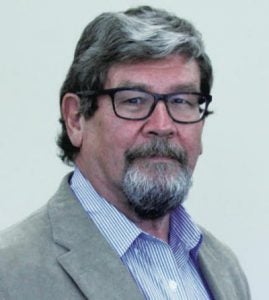Speaking is not enough: Exploring the receptive skills’ contributions to proficiency
Research-based proficiency assessments provide a powerful framework for well-articulated sequences of courses supporting student language development in college language programs for both students and instructors. Students and instructors need to be acquainted with the goals of proficiency-based learning and teaching and understand the relationship between the four macro-skills of listening, reading, speaking, and writing as well as the roles lexical and morphosyntactic competencies play in their development. Instructors need to know their students’ present levels of proficiency so they can help them move towards the next higher levels in these various areas.
This presentation provides baseline data to determine reasonable expectations for four-year undergraduate language programs in several modern languages and proposes links between receptive and productive levels of proficiency and vocabulary size as well as links between hours of instruction and proficiency levels. The discussion will focus on the kinds of things students need to know about language proficiency to be able to self-assess and to engage in purposeful learning activities appropriate for their specific levels; the things instructors need to know to plan and manage their students’ learning; and the kinds of teaching interventions that may be most beneficial at various proficiency levels.
Public Lectures
Learning Language for Professional Proficiency
Monday Nov 4, 4-6pm, Hope Room, Higgins Welcome Center
Department Workshops
Pathways to professional proficiency
Dec. 5, 11am-1pm, Conference room 201, Green Hall (lunch provided)
The importance of developing listening proficiency in academic contexts
October 24, 11am-1pm, Anchor Room, Higgins Welcome Center (lunch provided)

Erwin Tschirner (Ph.D., University of California-Berkeley) is Gerhard-Helbig-Professor of German as a Foreign Language at the University of Leipzig. His main areas of research include test research and test development, the acquisition of speaking, listening and reading abilities, vocabulary acquisition, German morphology and syntax, and corpus linguistics. He has taught at universities in the United States, Cuba, Argentina, and Germany and has lectured and consulted widely in many parts of the world. He is editor of Aligning Frameworks of Reference in Language Testing: The ACTFL Proficiency Guidelines and the Common European Framework of Reference for Languages (Stauffenburg 2012) and coauthor of Kontakte: A Communicative Approach (McGraw-Hill 20168) and A Frequency Dictionary of German: Core Vocabulary for Learners (Routledge 2006). He has published numerous articles, book chapters, books, and edited volumes in the field of foreign language teaching, learning, and assessment. He has been a tester and tester trainer for the ACTFL Oral Proficiency Interview since 1989 and 1993, respectively, and was a contributing author to the ACTFL Proficiency Guidelines 2012.
